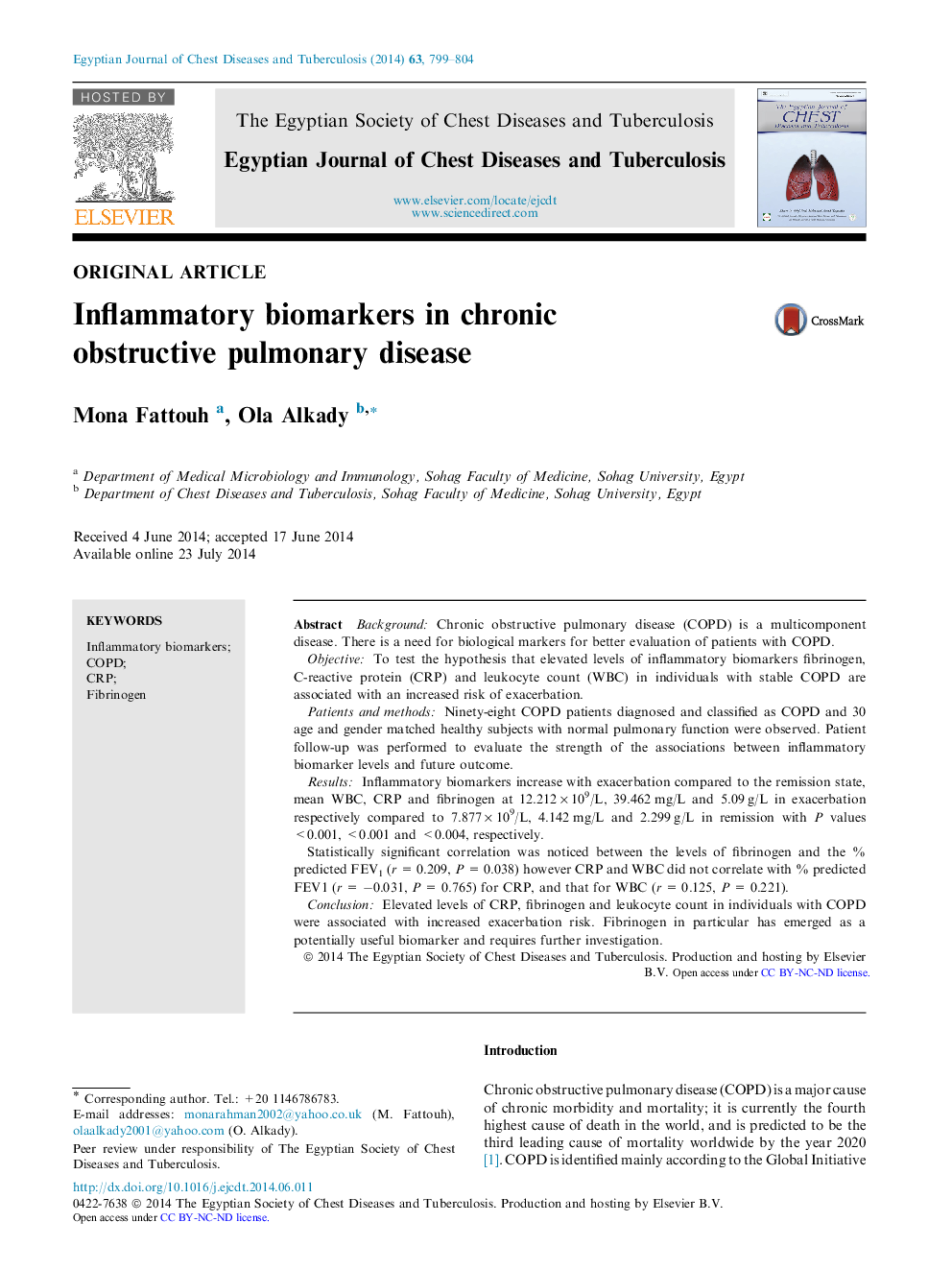| Article ID | Journal | Published Year | Pages | File Type |
|---|---|---|---|---|
| 3400214 | Egyptian Journal of Chest Diseases and Tuberculosis | 2014 | 6 Pages |
BackgroundChronic obstructive pulmonary disease (COPD) is a multicomponent disease. There is a need for biological markers for better evaluation of patients with COPD.ObjectiveTo test the hypothesis that elevated levels of inflammatory biomarkers fibrinogen, C-reactive protein (CRP) and leukocyte count (WBC) in individuals with stable COPD are associated with an increased risk of exacerbation.Patients and methodsNinety-eight COPD patients diagnosed and classified as COPD and 30 age and gender matched healthy subjects with normal pulmonary function were observed. Patient follow-up was performed to evaluate the strength of the associations between inflammatory biomarker levels and future outcome.ResultsInflammatory biomarkers increase with exacerbation compared to the remission state, mean WBC, CRP and fibrinogen at 12.212 × 109/L, 39.462 mg/L and 5.09 g/L in exacerbation respectively compared to 7.877 × 109/L, 4.142 mg/L and 2.299 g/L in remission with P values <0.001, <0.001 and <0.004, respectively.Statistically significant correlation was noticed between the levels of fibrinogen and the % predicted FEV1 (r = 0.209, P = 0.038) however CRP and WBC did not correlate with % predicted FEV1 (r = −0.031, P = 0.765) for CRP, and that for WBC (r = 0.125, P = 0.221).ConclusionElevated levels of CRP, fibrinogen and leukocyte count in individuals with COPD were associated with increased exacerbation risk. Fibrinogen in particular has emerged as a potentially useful biomarker and requires further investigation.
